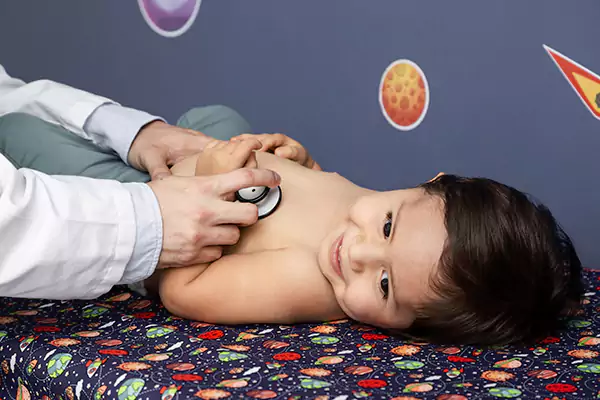Becoming a pediatrician is undoubtedly an arduous journey, requiring years of rigorous education, extensive training, and relentless dedication. From the moment one embarks on this path, they are faced with countless challenges that test their mental, physical, and emotional endurance. The demanding curriculum, grueling hours of study, and the weight of responsibility can often feel overwhelming. However, with the right preparation, the rewards that await are immeasurable.
The journey to becoming a doctor involves years of preparation, including completing a bachelor’s degree, followed by medical school, and then residency. It requires unwavering commitment, sacrifice, and an insatiable thirst for knowledge that can be fulfilled by an online pediatrics course. The countless hours spent studying, the sleepless nights on call, and the intense pressure of making life-saving decisions can be daunting. Yet, those who persevere find themselves in a noble profession that allows them to make a significant impact on the lives of others.

Comprehensive Guide to Be a Pediatrician
Becoming a pediatrician is a noble and rewarding career choice. Pediatricians play a crucial role in the health and well-being of children, from infancy to adolescence. To embark on this journey, aspiring pediatricians need to carefully plan and prepare during their medical program years. This comprehensive guide will outline essential steps and strategies to help students in medical programs prepare for a successful career in pediatrics.
Gain Early Exposure to Pediatrics
To develop a genuine interest in pediatrics and ensure it is the right career path, medical program students should seek early exposure. Opportunities to shadow pediatricians, volunteer at pediatric clinics or hospitals, or participate in research projects focused on pediatric medicine can provide valuable insights into the field. These experiences can help students understand the unique challenges and rewards of working with children and solidify their passion for pediatrics.
Build a Strong Foundation
Pediatricians require a solid foundation in medical knowledge. Students should dedicate themselves to excelling in their coursework during medical school. Focus on subjects like anatomy, physiology, pharmacology, and pathology, as they form the basis of pediatric medicine. Additionally, develop excellent clinical skills, including history-taking and physical examination techniques, as these will be vital in pediatric practice.
Seek Mentorship and Guidance
Finding mentors who are experienced pediatricians can significantly impact your journey. Seek guidance from faculty members, physicians, or residents who specialize in pediatrics. They can offer advice, share personal experiences, and provide valuable insights into the field. Establishing relationships with mentors can also open doors to research opportunities, networking events, and recommendation letters for residency programs.
Engage in Extracurricular Activities
Participating in extracurricular activities related to pediatrics can demonstrate your commitment and passion for the field. Joining student organizations, such as the American Academy of Pediatrics (AAP) or local pediatric interest groups, can provide access to valuable resources, conferences, and networking opportunities. Additionally, engaging in community service projects focused on children’s health can showcase your dedication to improving pediatric healthcare.
Excel in Pediatric Clerkships
During your clinical rotations, make the most of your pediatric clerkships. These rotations provide hands-on experience and exposure to various pediatric specialties. Actively engage with patients, their families, and the healthcare team. Develop effective communication skills, learn to address the unique needs of children, and gain an understanding of the ethical considerations in pediatric care. Seek feedback from attending physicians and residents to continuously improve your skills.
Prepare for the USMLE Exams
Scoring well on the United States Medical Licensing Examination (USMLE) is essential for residency applications. Begin your exam preparation early, utilizing resources like review books, online question banks, and practice exams. Dedicate focused study time, and consider joining study groups or seeking guidance from seniors who have successfully navigated the exams. Remember that diligent preparation is key to performing well on the USMLE Step 1, Step 2 Clinical Knowledge (CK), and Step 3 exams.
Consider Subspecialties and Electives
Pediatrics offers a wide range of subspecialties, such as pediatric cardiology, pediatric neurology, and pediatric emergency medicine. Consider exploring these subspecialties during electives or by attending specialty-specific conferences or seminars. Exposure to different areas within pediatrics can help you identify your areas of interest and potentially guide your future career choices.
Prepare a Strong Residency Application
The application process for pediatric residency programs is highly competitive. To stand out, build a comprehensive application that showcases your passion for pediatrics. This includes a well-crafted personal statement, compelling letters of recommendation, and a detailed curriculum vitae (CV). Seek guidance from mentors or career advisors on how to effectively highlight your experiences, research, and extracurricular activities.
Free Online Courses For Pediatricians
Pediatric Advanced Life Support
This online course, offered by the American Heart Association, provides training in pediatric emergency resuscitation techniques. It covers topics such as recognizing and managing respiratory distress, cardiac arrest, and other life-threatening pediatric emergencies. The course includes interactive modules, case studies, and simulations to enhance learning.
Introduction to Pediatrics
This course, available on the Coursera platform, is provided by the University of Colorado School of Medicine. It offers an overview of pediatric care, including normal growth and development, common pediatric illnesses, and preventive healthcare. The course includes video lectures, readings, quizzes, and discussion forums to facilitate learning and interaction with fellow participants.
Neonatal Resuscitation Program
Offered by the American Academy of Pediatrics (AAP), the NRP course focuses on the essential knowledge and skills needed for newborn resuscitation. It covers topics such as initial assessment, effective ventilation techniques, and the use of medications and equipment during neonatal resuscitation. The course consists of online modules, interactive simulations, and a final exam.
Conclusion:
The number of rising infant deaths and the increasing aging of seniors have placed many countries in a situation where they are not able to combat the imbalance of the working population. By choosing to be a pediatrician, as a doctor you can make a difference in saving young children from untimely health complications. A world that cannot protect its children is a scary place to live in. Only specialist healthcare services and pediatricians can ensure that our young grow to become healthy adults of the future.




